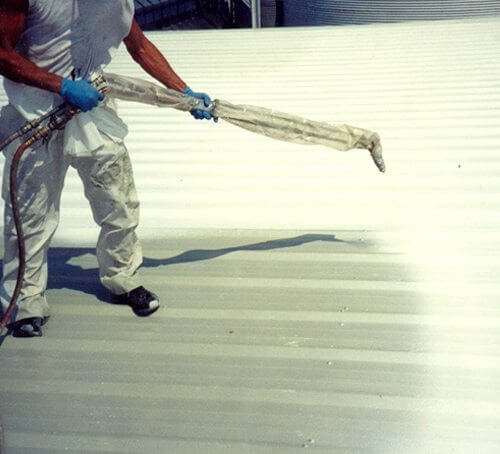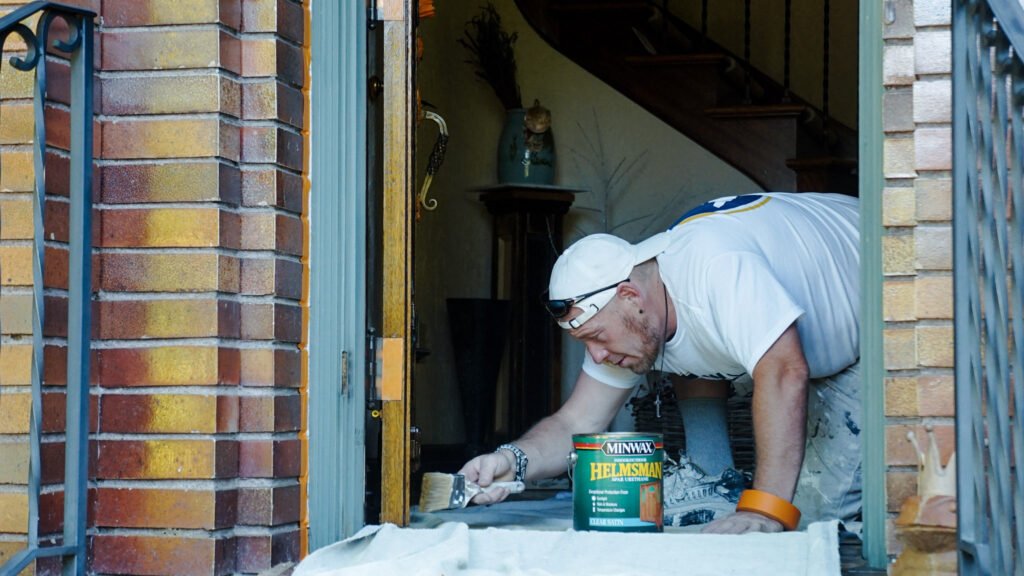
Spray on roof coatings are an excellent way to protect commercial roofing systems and extend their life. They can reduce heat reflection into your building, which in turn helps to cut down on energy costs. They are very affordable and can help you save money on your utility bills.
Several factors affect the quality of your spray applied roof coating. Look for products that are elastomeric, offer superior UV protection and water resistance. A product should be highly reflective and easy-to-apply.
It is essential to find a durable spray-on roof coating that can be easily maintained. Poorly applied roof coatings can cause serious damage to commercial buildings.
Spray on roof coatings come in many forms, each with its own benefits. Most common are silicone, 100% acrylic and spray polyurethane foam. Each type is recommended for specific situations.

Whether you're looking for a spray on roof coating or are considering a new roofing solution, you should always call a professional roofer for an inspection. They will give you a complete analysis of your roofing system, and then recommend the best option to fit your building.
To remove any dirt or debris, they will thoroughly clean the roof. They will then conduct an adhesion testing to determine if the roof is suitable for spray-applied roofing coating.
Before any roofing contractor begins work, they will have to thoroughly clean and prime the roof. This will make sure that there is no contamination on the roof surface that could hinder the process.
Once your roof is sealed with a spray coating roof coating, it will provide years of worry-free, watertight performance. The roofing contractor will repair and reinforce seams, flashings, and penetrations with mesh and coating before they apply the top coat.
Once the coating has cured it will be easy for you to keep your building clean and free of harmful UV rays. The coating will reflect the sun's rays back into space, keeping your interior cool and reducing heating and cooling costs.

You can also have a spray-on roof coating applied to your commercial property. This will make it extremely durable and can withstand any weather conditions. It will help to prevent damage caused by extreme heat, rain, and wind.
Also, make sure your roofing contractor offers a warranty on the work they do and the materials they use. This will give your roof peace of mind and make the process easier to get in touch with them if something goes wrong.
Spray on roof coatings for commercial buildings are a great option because they can increase the life expectancy of your roof by eliminating the need to repair or re-coat. Spray-on roof coatings are cost-effective and easy to apply.
FAQ
What does my SCA cover?
Your SCA will detail the scope of work, including the time it will take, how many materials are needed, what equipment is required, and whether special permits are necessary.
What's the purpose for the service agreement?
A Service Agreement is used to establish the terms on which your customer will purchase goods from you. You will also be able to provide these services to customers for payment.
The most commonly used form of this document, is the Sales Order Form. Here you will list the items being purchased and their prices. You can also list any other items such as delivery charges, VAT or insurance. Finally, you will specify when the order should delivery and be paid for.
You can use different documents depending on the nature or transaction.
For example, if you are providing a service rather than selling a product, you may use an invoice instead.
A Purchase Order Form is what you would use to buy from someone else.
It is important to include all required information when drafting a sale order form.
Keep in mind: The more detailed the sales order form, the easier it is for the buyer.
Who provides a Service Agreement?
Service agreements between you and your customers define how you will deliver services to them. This agreement outlines your customer's responsibilities and what you must do for them. It also explains when you have to pay them.
Additional fees for services may also be confirmed in the service agreement.
Service agreements should contain all terms and conditions applicable to the contract. This includes payment terms, delivery times, warranties, and the like.
You can use this template to cover every aspect of the agreement.
Do I have to sign anything prior to starting work?
Yes - your SCA requires both parties to sign it. This means neither party can change their mind later without the other party's consent.
Is there a limit to the amount of money I can spend on the project?
No. Your SCA will set a maximum cost for the project. However, you may be able to negotiate a lower price with the contractor.
Statistics
- Reasonable late fees go up to 25% per year on unpaid sums. (lawdepot.com)
- While we offer all our high-quality services at competitive prices, we know that many who need our services are on fixed incomes, so we offer a 10 percent discount for seniors and military members. (homeservicecontractorsinc.com)
- (d) Contractor disputes related to compliance with its obligation shall be handled according to the rules, regulations, and relevant orders of the Secretary of Labor (see 41 CFR60-1.1). (acquisition.gov)
- (v) Place or places of performance of the prime contract and first-tier subcontracts estimated at $10 million or more, if known. (acquisition.gov)
- (ii) Name, address, and telephone number of each proposed first-tier subcontractor with a proposed subcontract estimated at $10 million or more. (acquisition.gov)
External Links
How To
What should a service contract include?
Every business relationship should have a Service Agreement (SA). It outlines what you expect from each other and how you will achieve this. The SA also details when and where each party should fulfill its contractual obligations.
The key elements of a successful SA are:
-
Both parties agree on the scope of work and the services they require.
-
Information about payment terms, including the start and end dates for delivery of goods/services.
-
An agreed price for the project.
-
Additional charges such as VAT and other fees may apply.
-
Whether there is any other matter that should be discussed.
-
Who will take care of the job if it goes wrong?
-
How disputes will be settled
-
What happens if a party breaches the contract.
-
What happens if there is a dispute
-
When will the contract become effective?
-
What happens when one of the parties doesn't perform?
-
What time do you need to pay your invoices?
-
Who pays for things like travel expenses.
-
Where the money is coming from.
-
What happens if the client decides to change his mind about the project.
-
What happens when the supplier doesn’t show up.
-
Who has the right to enter the site during construction?
-
What happens if the client cancels the project?
-
What happens if the product malfunctions?
-
What happens if the manufacturer refuses parts?
-
What happens if the equipment is damaged?
-
What happens if the project takes more time than anticipated?
-
What happens if you don't complete the work within the set timeframe?
-
What happens if the final product isn't up to expectations?
-
What happens if the cost exceeds?
-
What happens to the materials if they are not delivered on-time?
-
What happens if the material arrives damaged?
-
What happens if the products are not up to standard.
-
What happens if you cancel the job before it is complete?
-
What happens to the company if it goes bust?